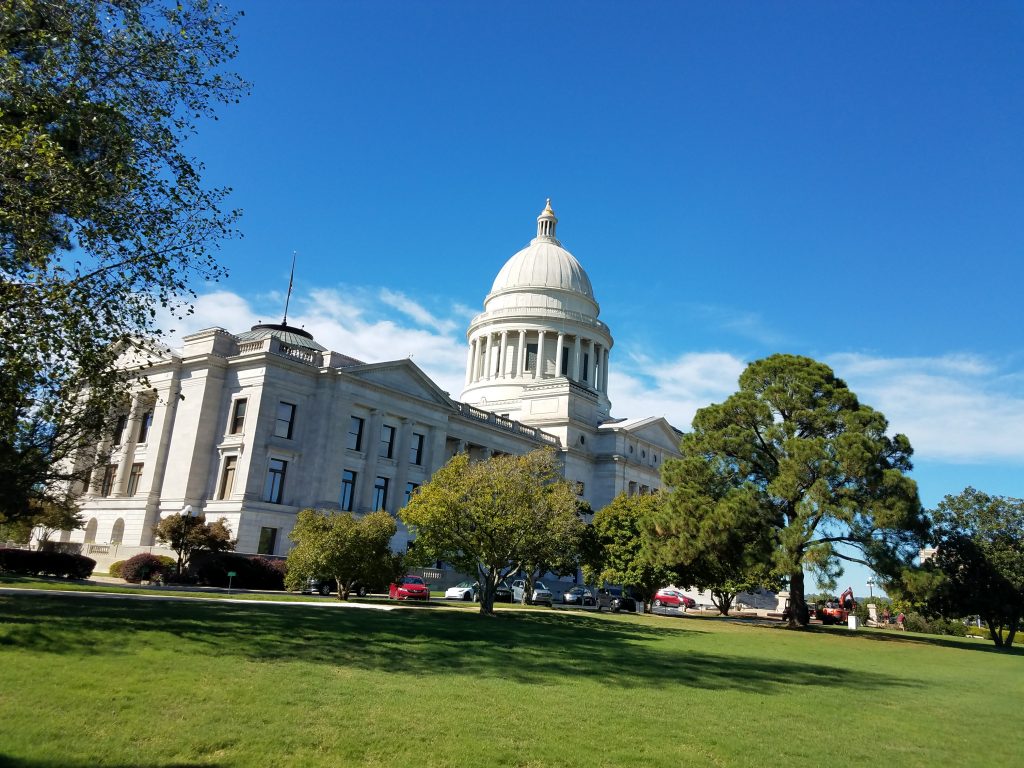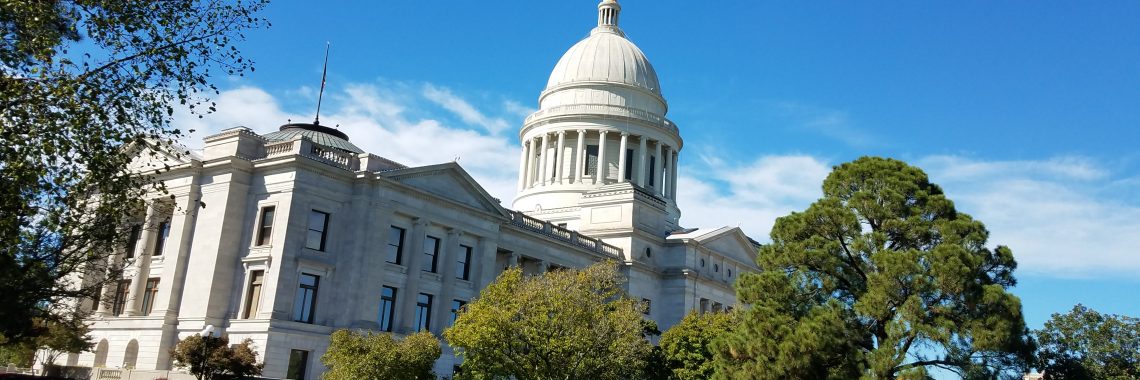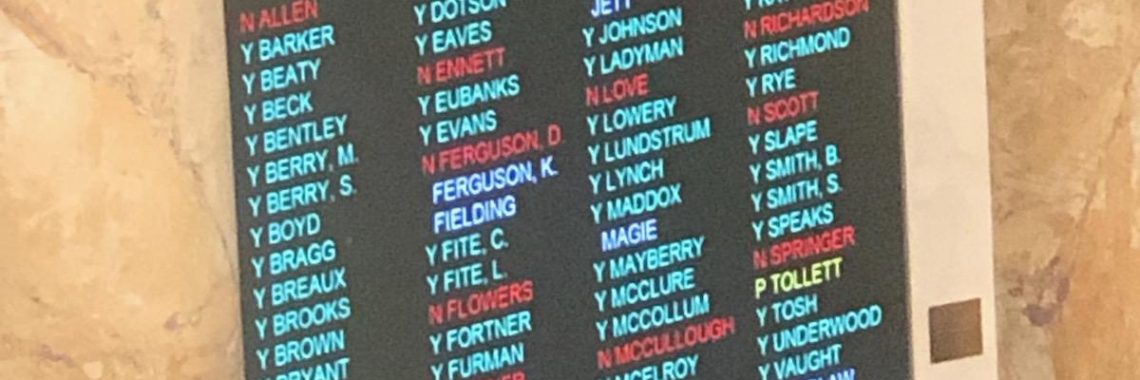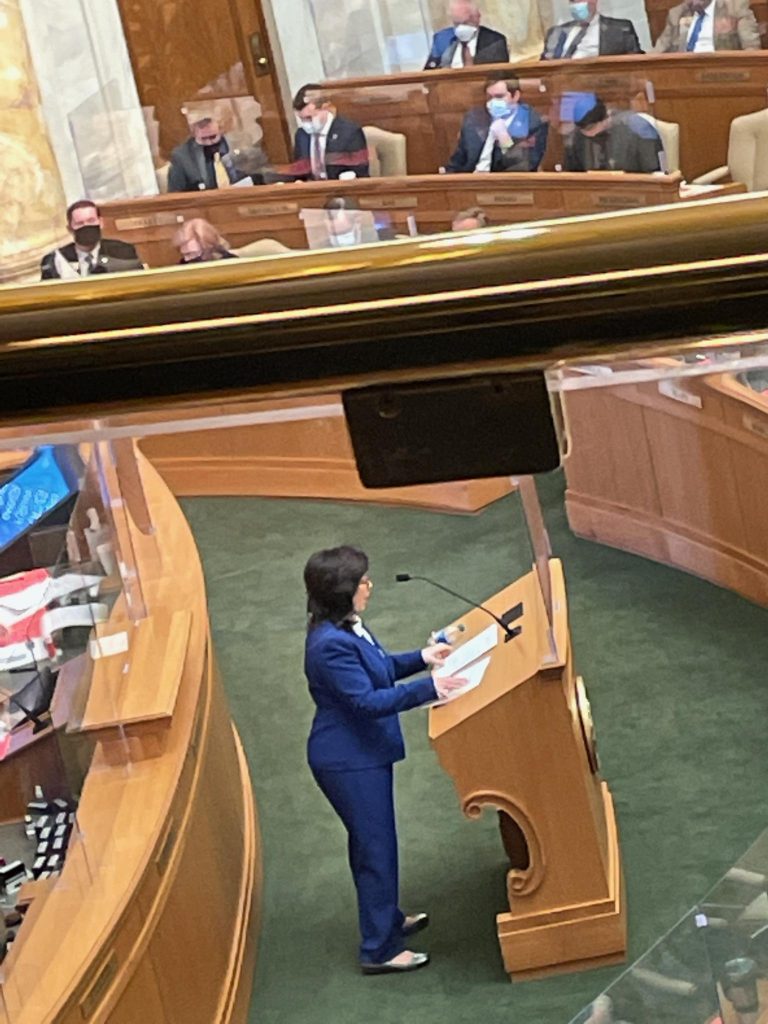Here Are The Number of Pro-Laws Each Arkansas Legislator Has Successfully Sponsored Since 2011

Recently Family Council wrote that the Arkansas Legislature passed 44 pro-life laws from 2011 – 2021.
Since then, our team has analyzed the number of times each member of the General Assembly sponsored a pro-life measure that passed into law.
Below is an overview of the number of successful pro-life measures that each legislator sponsored and passed from 2011 to 2021.
Arkansas Senate:
- Sen. Gary Stubblefield (R – Branch): 7
- Sen. Missy Irvin (R – Mountain View): 5
- Sen. Jason Rapert (R – Conway): 5
- Sen. Bob Ballinger (R – Ozark): 4
- Sen. Cecile Bledsoe (R – Rogers): 4
- Sen. Scott Flippo (R – Bull Shoals): 3
- Sen. Blake Johnson (R – Corning): 3
- Sen. Linda Collins-Smith (R – Pocahontas): 2
- Sen. Trent Garner (R – El Dorado): 2
- Sen. Kim Hammer (R – Benton): 2
- Sen. Jim Hendren (I – Gravette): 2
- Sen. Bart Hester (R – Cave Springs): 2
- Sen. Charles Beckham (R – McNeil): 1
- Sen. Ben Gilmore (R – Crossett): 1
- Sen. Jeremy Hutchinson (R – Little Rock): 1
- Sen. David Sanders (R – Little Rock): 1
Arkansas House of Representatives:
- Rep. Robin Lundstrum (R – Springdale): 7
- Rep. Sonia Barker (R – Smackover): 5
- Rep. Mary Bentley (R – Perryville): 3
- Rep. Joe Cloud (R – Russellville): 3
- Rep. Charlene Fite (R – Van Buren): 3
- Rep. Jim Dotson (R – Bentonville): 2
- Rep. Andy Mayberry (R – Hensley): 2
- Rep. Julie Mayberry (R – Hensley): 2
- Rep. Butch Wilkins (D – Bono): 2
- Rep. Harlan Breaux (R – Holiday Island): 1
- Rep. Karilyn Brown (R – Sherwood): 1
- Rep. Ann Clemmer (R – Benton): 1
- Rep. Charlie Collins (R – Fayetteville): 1
- Rep. Tony Furman (R – Benton): 1
- Rep. Justin Harris (R – West Fork): 1
- Rep. Spencer Hawks (R – Conway): 1
- Rep. Mark Lowery (R – Maumelle): 1
- Rep. Clint Penzo (R – Springdale): 1
- Rep. Rebecca Petty (R – Rogers): 1
- Rep. Aaron Pilkington (R – Clarksville): 1
- Rep. Nate Steel (D – Nashville): 1
- Rep. Kendon Underwood (R – Cave Springs): 1
- Rep. Jim Wooten (R – Beebe): 1
As far as we can tell, Sen. Gary Stubblefield has successfully sponsored more pro-life legislation in the Arkansas Senate than any senator in Arkansas history, and Rep. Robin Lundstrum has successfully sponsored more pro-life legislation in the Arkansas House than any representative in Arkansas history.
Many of the lawmakers on this list sponsored other good, pro-life measures that — for various reasons — did not pass into law.
Dozens of lawmakers have served as co-sponsors for pro-life legislation over the years. Many have voted pro-life at every opportunity in the Arkansas House or Arkansas Senate.
In 2021 the Arkansas General Assembly enacted more pro-life legislation than any state legislature in the nation. Thanks to the hard work of these lawmakers, Arkansas is the most pro-life state in America.
Read More About the Pro-Life Laws Passed From 2011 – 2021 Here.
Articles appearing on this website are written with the aid of Family Council’s researchers and writers.



